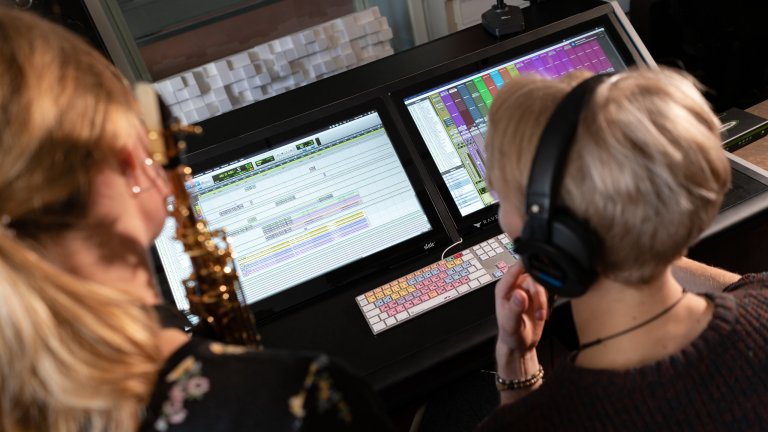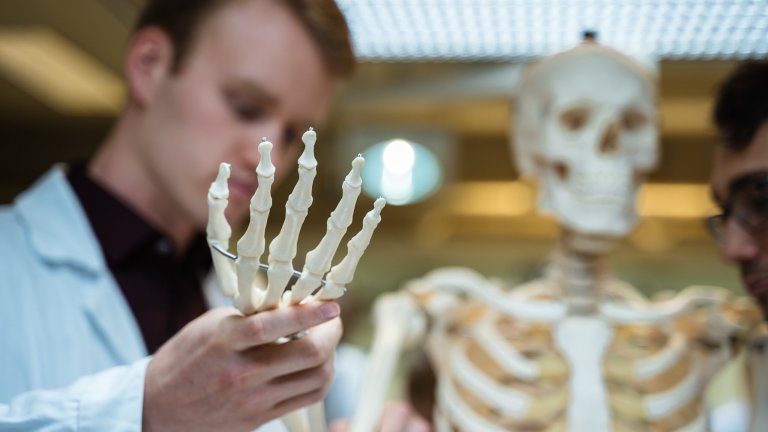Doctoral programmes and centres
Here, you can find an overview of the doctoral programmes at the University of Tartu. The University of Tartu offers eight doctoral programmes (further divided into specialisations), all of which fall under one of four centres for doctoral studies:
 Centre for Doctoral Studies in Humanities
Centre for Doctoral Studies in Humanities
 Centre for Doctoral Studies in Social Sciences
Centre for Doctoral Studies in Social Sciences
 Centre for Doctoral Studies in Medicine and Sport
Centre for Doctoral Studies in Medicine and Sport
 Centre for Doctoral Studies in Science and Technology
Centre for Doctoral Studies in Science and Technology
The information on this page is relevant from the 2022/2023 academic year. Please visit the Study Information System here if you are interested in programmes before 2022/2023.

Doctoral research conducted at the faculty is extremely varied, ranging from zoosemiotics to archaeological chemistry. This diversity is supported by the structure of admission – all specialisations offer the chance to apply for a doctoral research position with your own topic.
Homepage of the Centre for Doctoral Studies in Humanities
Doctoral programme in Humanities
Information regarding the programme and application process
Specialisations in the Institute of Cultural Research
- Comparative Literature
- Estonian Literature
- Ethnology
- Folkloristics
- Theatre Studies
Specialisations in the Institute of Estonian and General Linguistics
- Finno-Ugric Studies
- Linguistics
Specialisations in the Institute of Foreign Language and Cultures
- Classical Philology
- English Language and Literature
- French Language and Literature
- German Language and Literature
- Russian Language and Literature
- Scandinavian Languages and Literature
- Spanish Language and Literature
- Translation Studies
Specialisations in the Institute of History and Archaeology
- Archaeology
- Art History
- History
Specialisations in the Institute of Philosophy and Semiotics
- Philosophy
- Semiotics and Culture Studies
Specialisations in the School of Theology and Religious Studies
- Religious Studies
- Theology

Research at the faculty is focused on impactful societal questions, which are investigated with state-of-the-art methods. The aim of the faculty is to shape and interpret the future of society, and doctoral students play an integral role in achieving that goal.
Homepage of the Centre for Doctoral Studies in Social Sciences
Doctoral programme in Educational Sciences
Information regarding the programme and application process
- Educational Science
- Science Education
Doctoral programme in Social Sciences
Information regarding the programme and application process

UT medical researchers are acknowledged leaders in their field—thanks to them UT is among the 1% of the world’s most influential research institutions in the field of clinical medicine. Around 200 doctoral students are enrolled in the faculty’s doctoral programme.
Homepage of the Centre for Doctoral Studies in Medicine and Sport
Doctoral programme in Medicine and Sport
Information regarding the programme and application process

The institutes that coordinate the specialisations are the Institute of Computer Science, the Institute of Physics, the Institute of Chemistry, the Institute of Mathematics and Statistics, the Institute of Molecular and Cell Biology, Tartu Observatory, the Institute of Technology, the Institute of Ecology and Earth Sciences, and the Institute of Genomics. Additionally, the Science Education specialisation from the Educational Sciences programme of the Faculty of Social Sciences falls under the centre’s responsibility.
Homepage of the Centre for Doctoral Studies in Science and Technology
Doctoral programme in Chemical and Physical Sciences
Information regarding the programme and application process
- Chemistry
- Physics
- Space Research and Technology
Doctoral programme in Engineering and Technology
Information regarding the programme and application process
- Computer Engineering
- Environmental Technology
- Materials Science
- Molecular Biotechnology
- Sustainable Energetics
Doctoral programme in Life and Earth Sciences
Information regarding the programme and application process
- Biodiversity and Ecological Sustainability
- Genomics
- Geography
- Geology
- Molecular Biosciences
Doctoral programme in Mathematics and Computer Science
Information regarding the programme and application process
- Computer Science
- Mathematical Sciences


